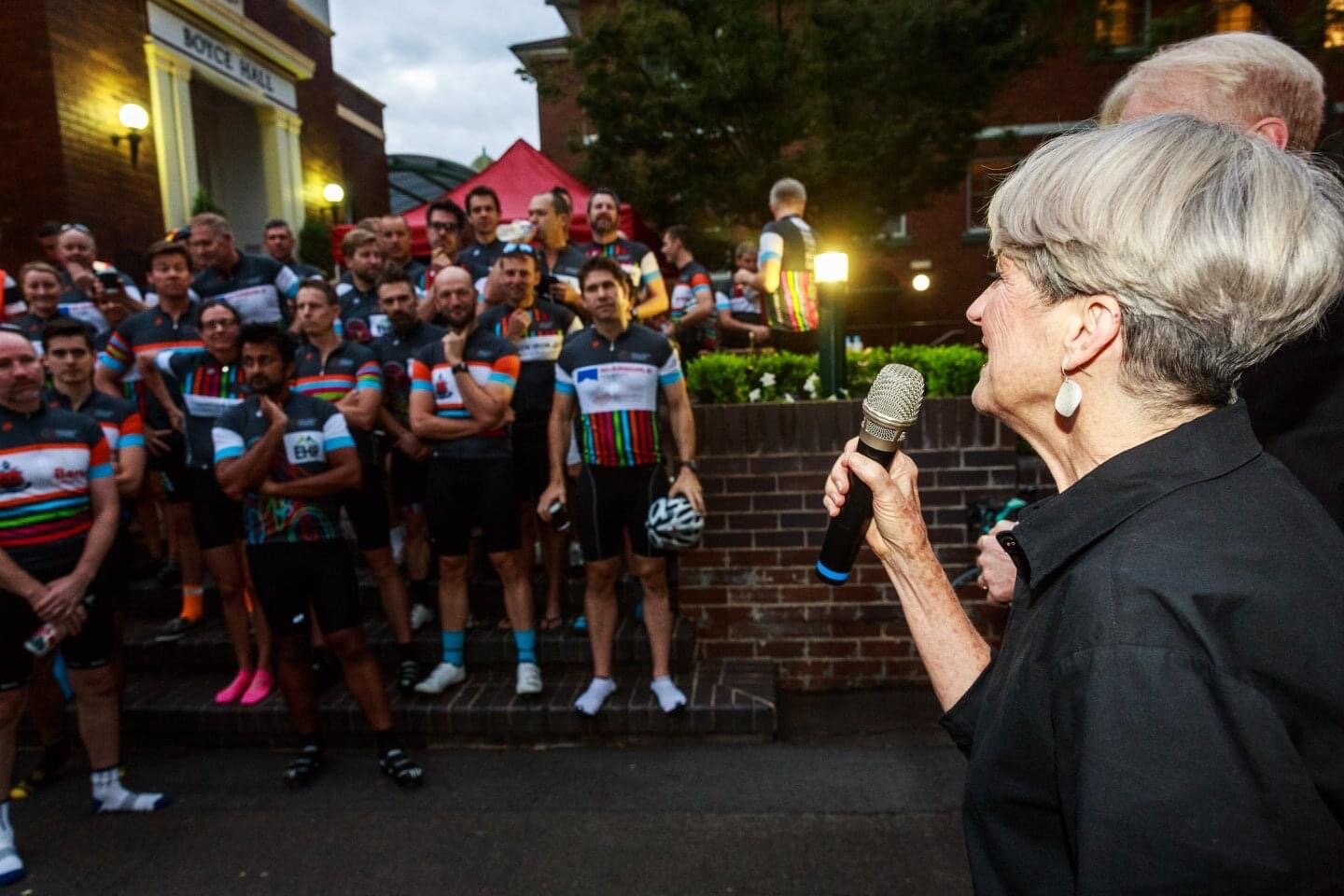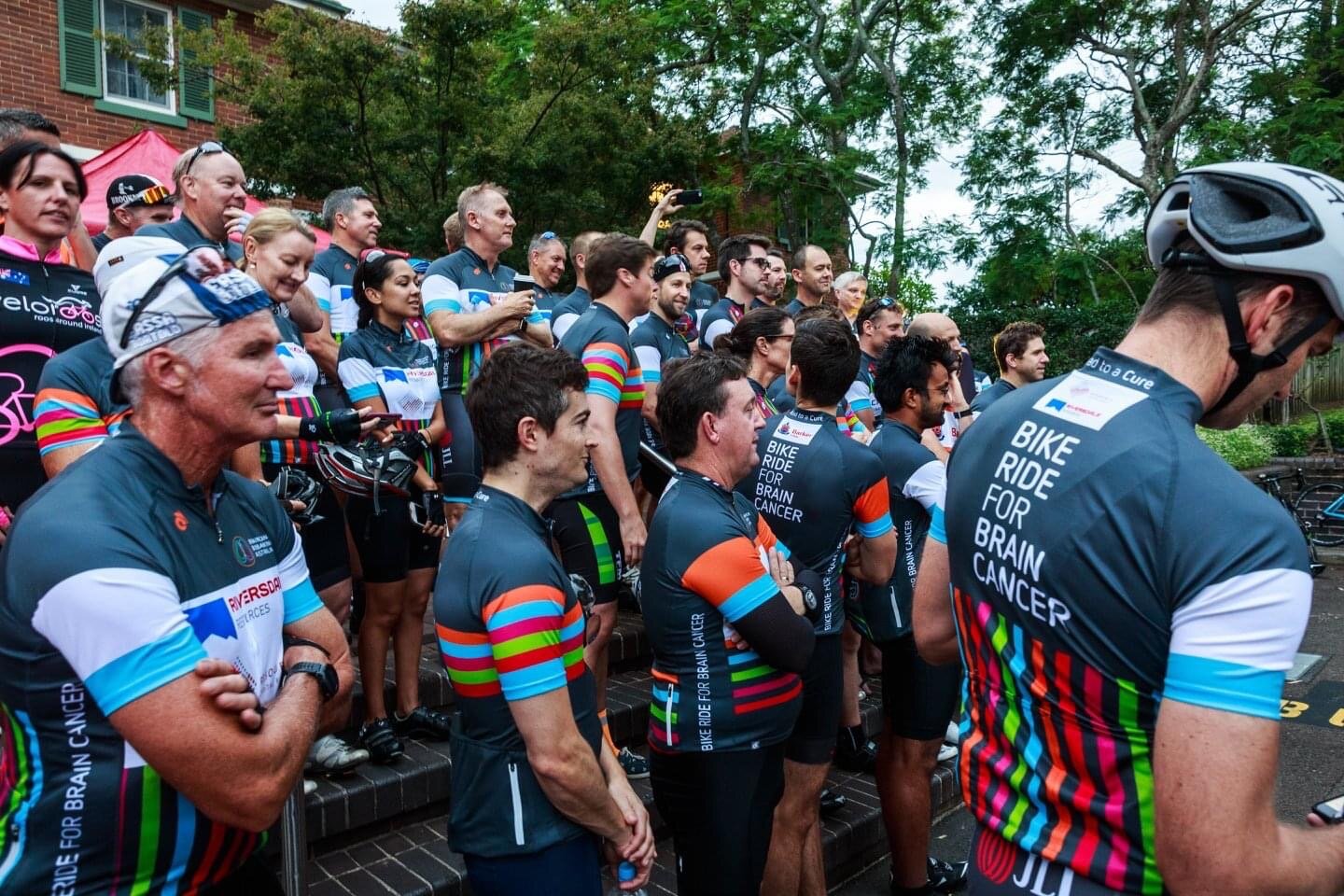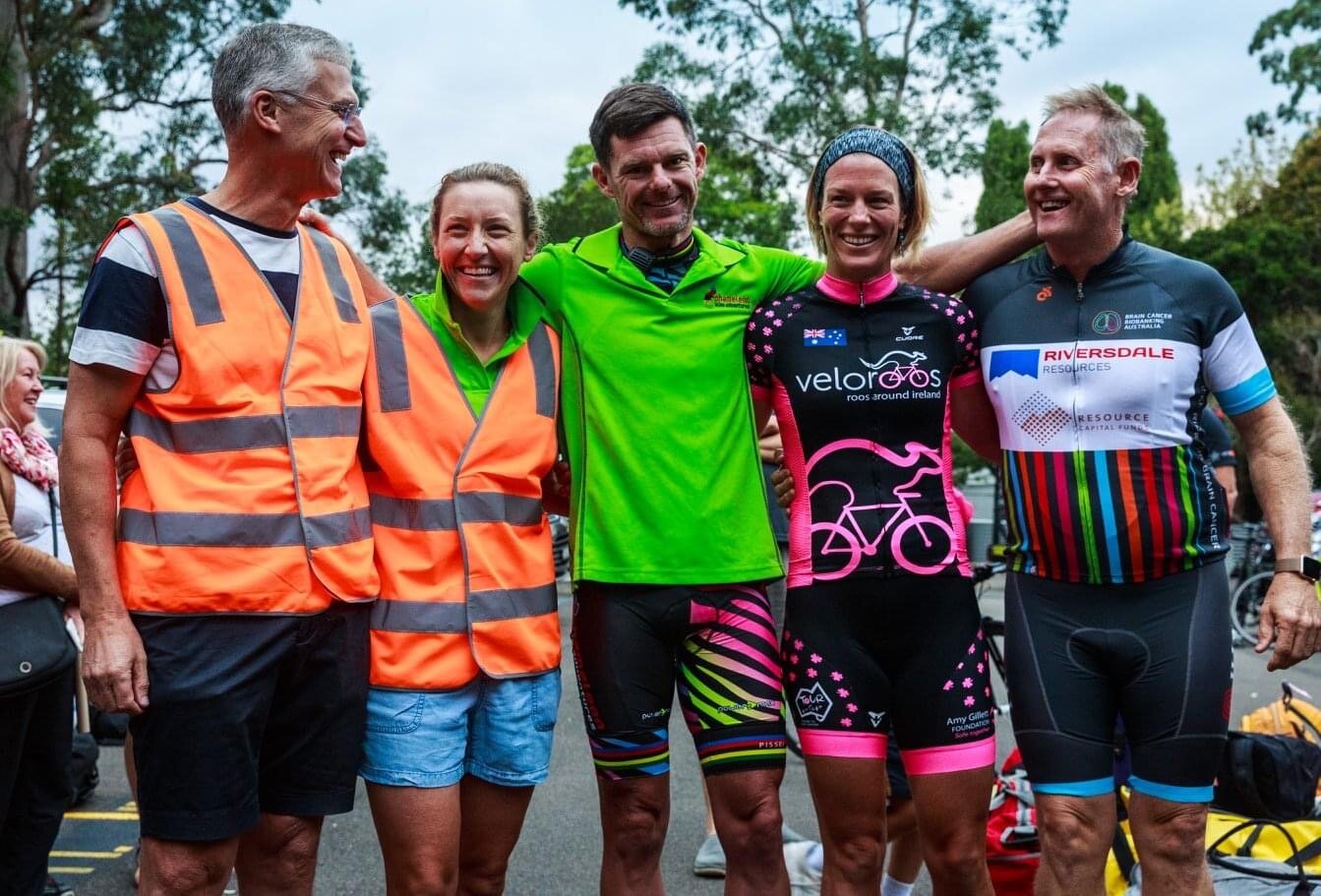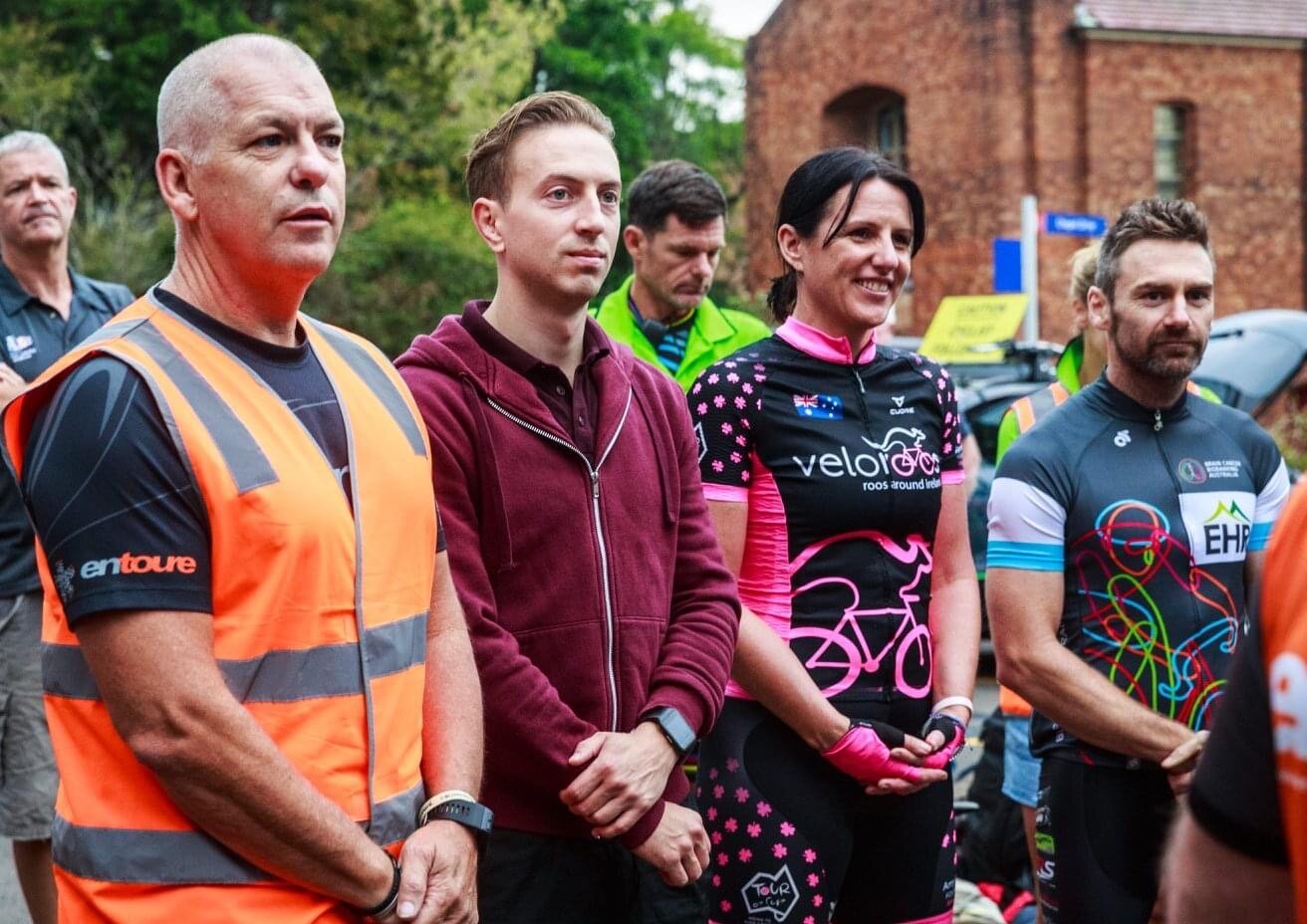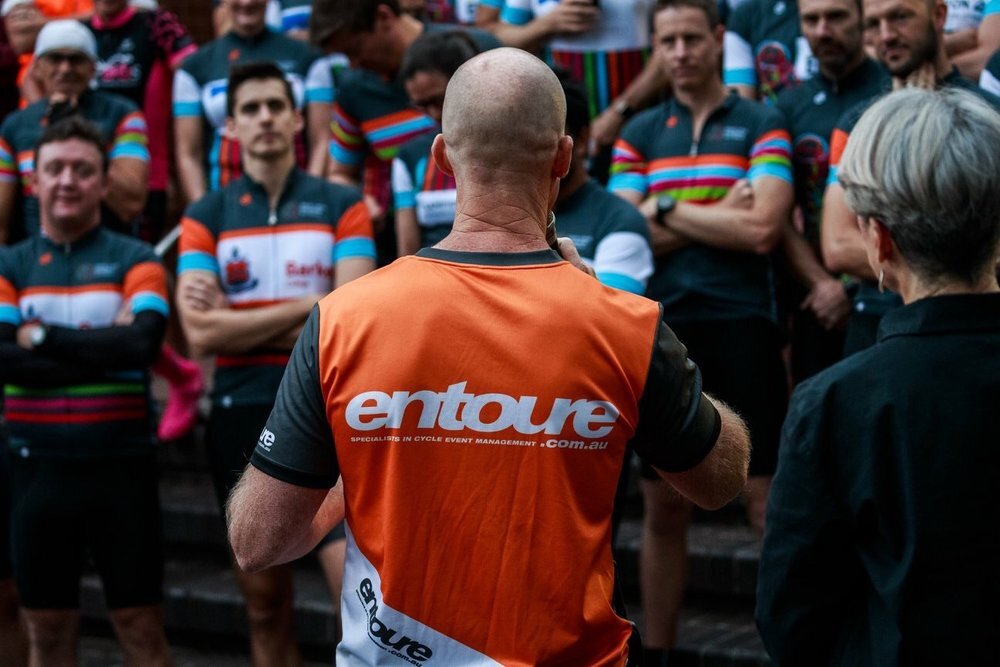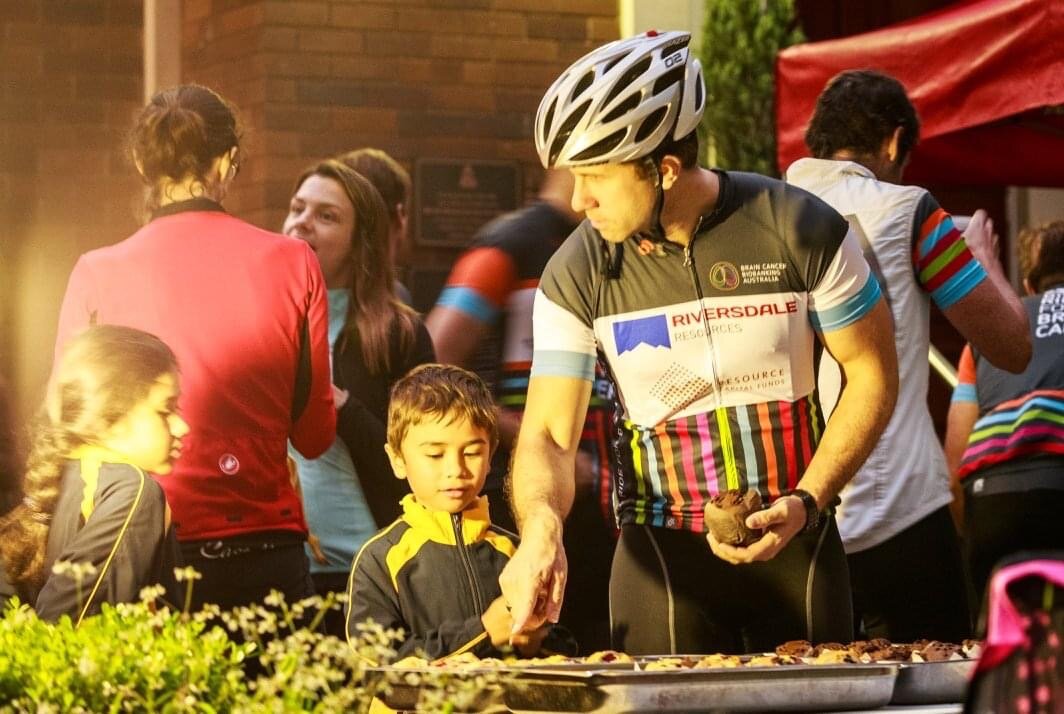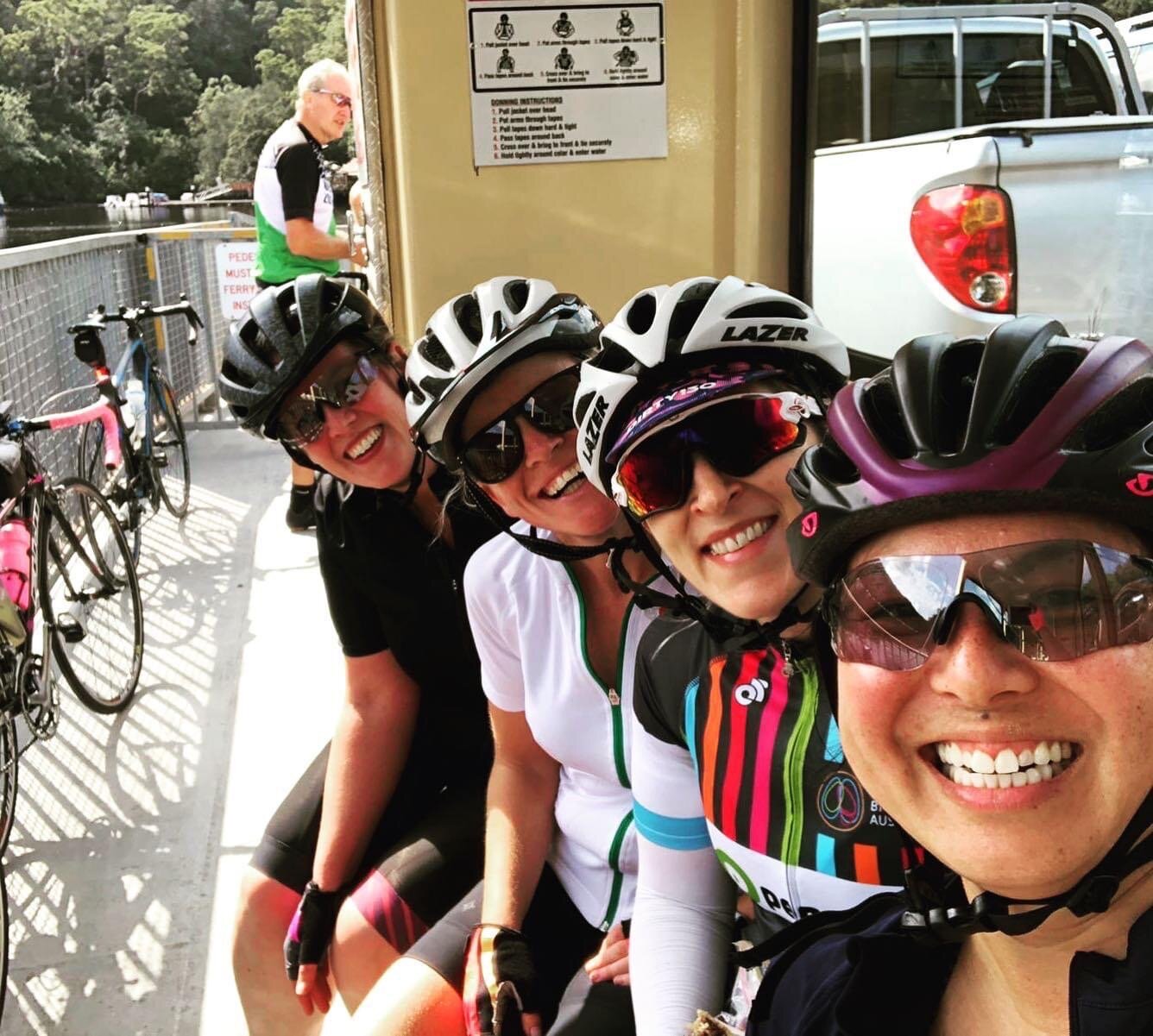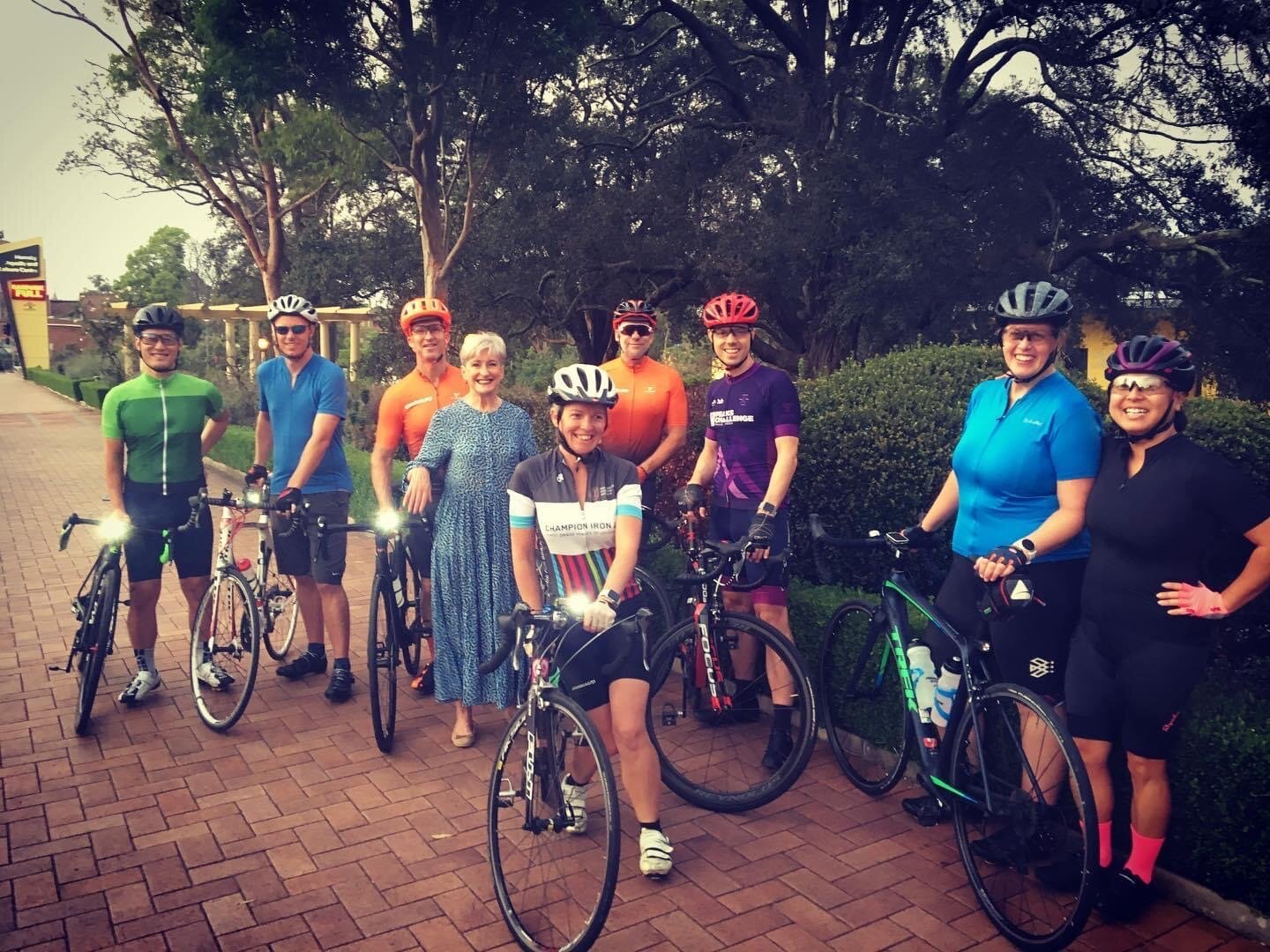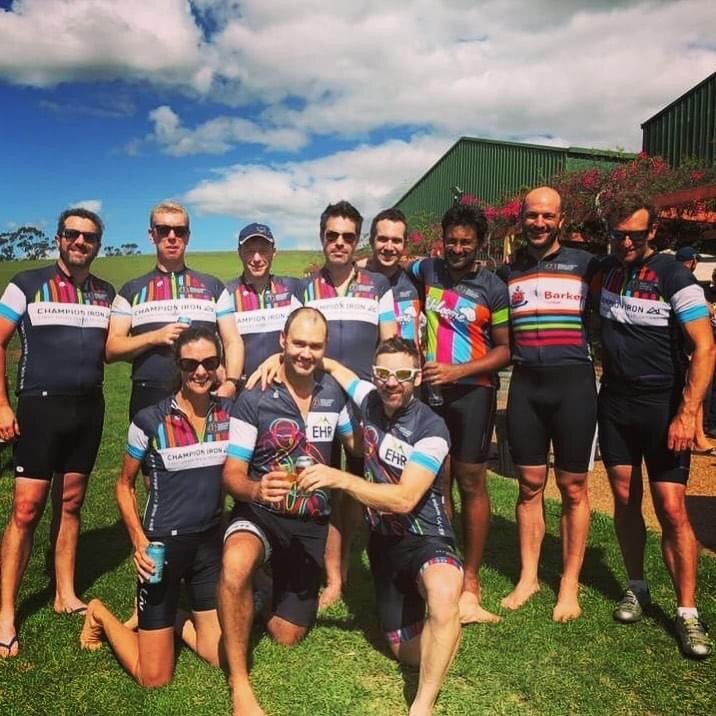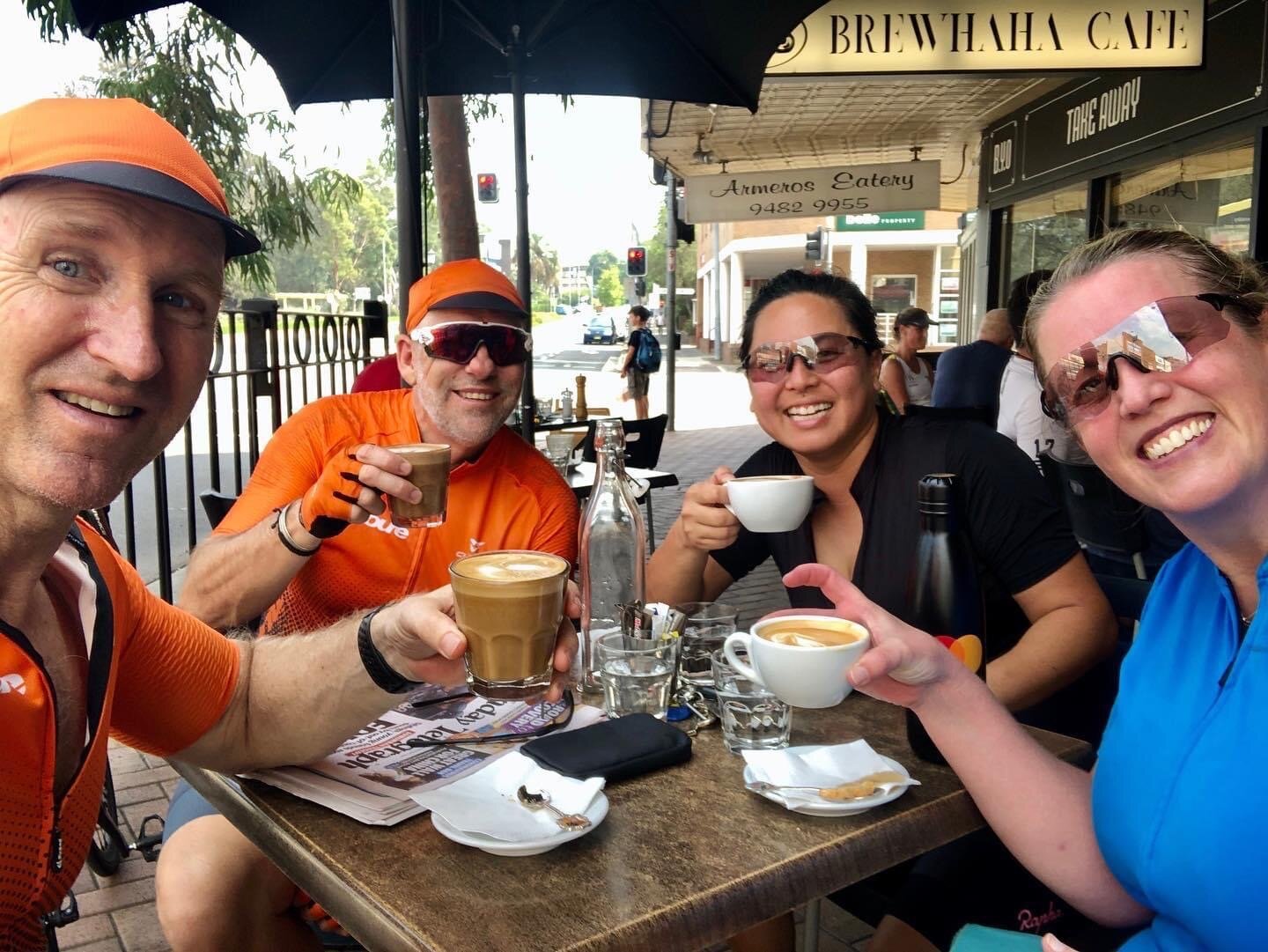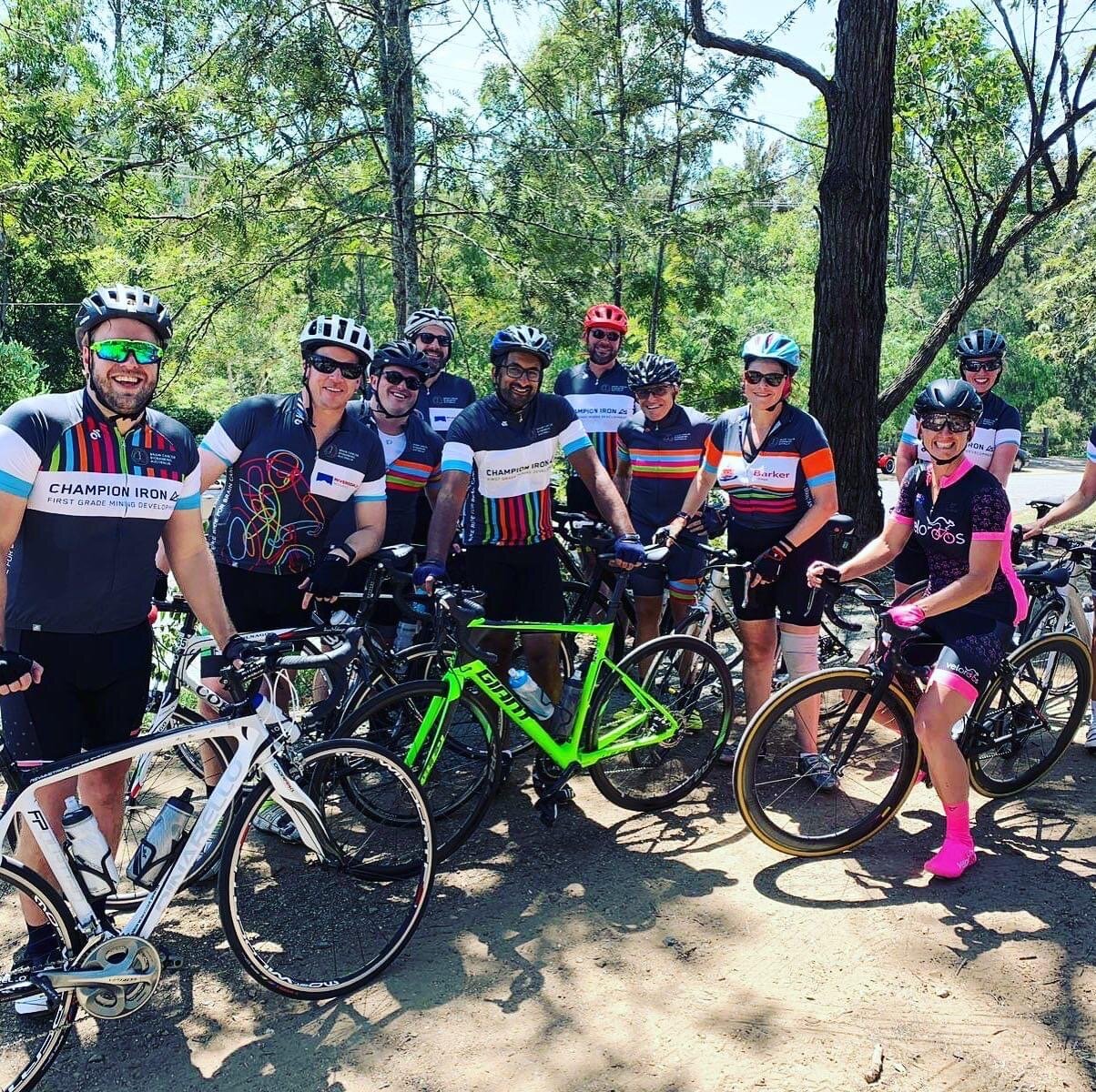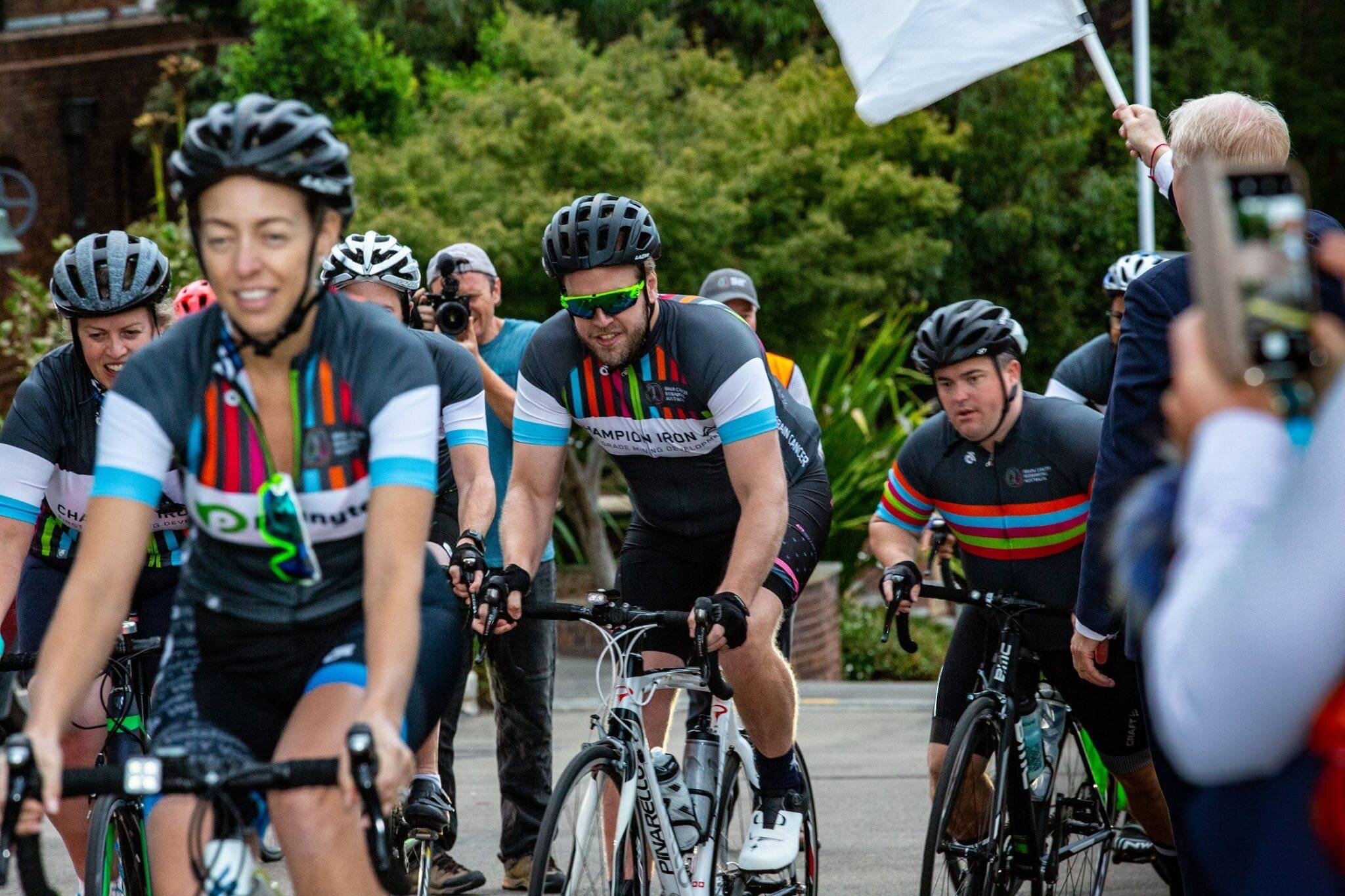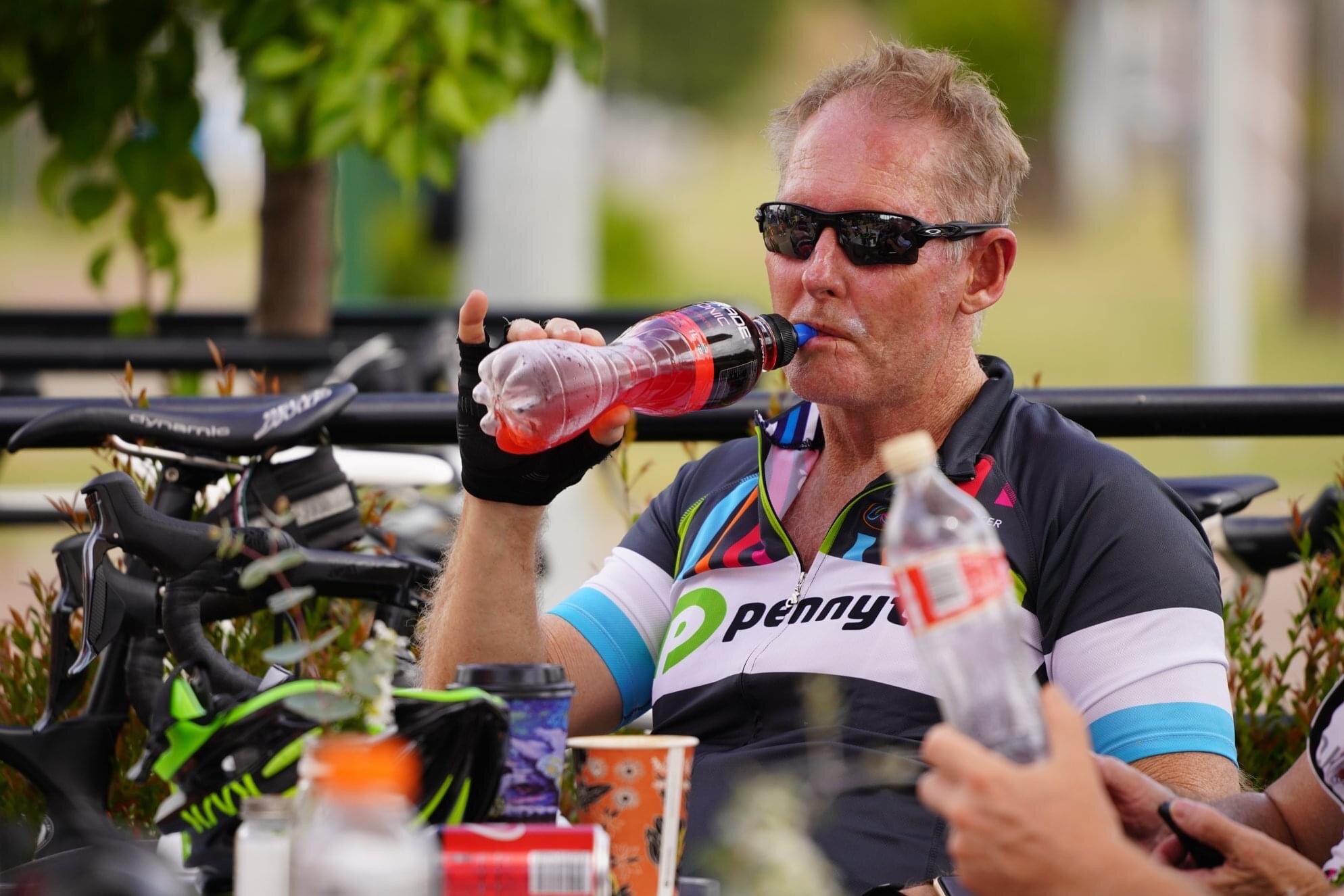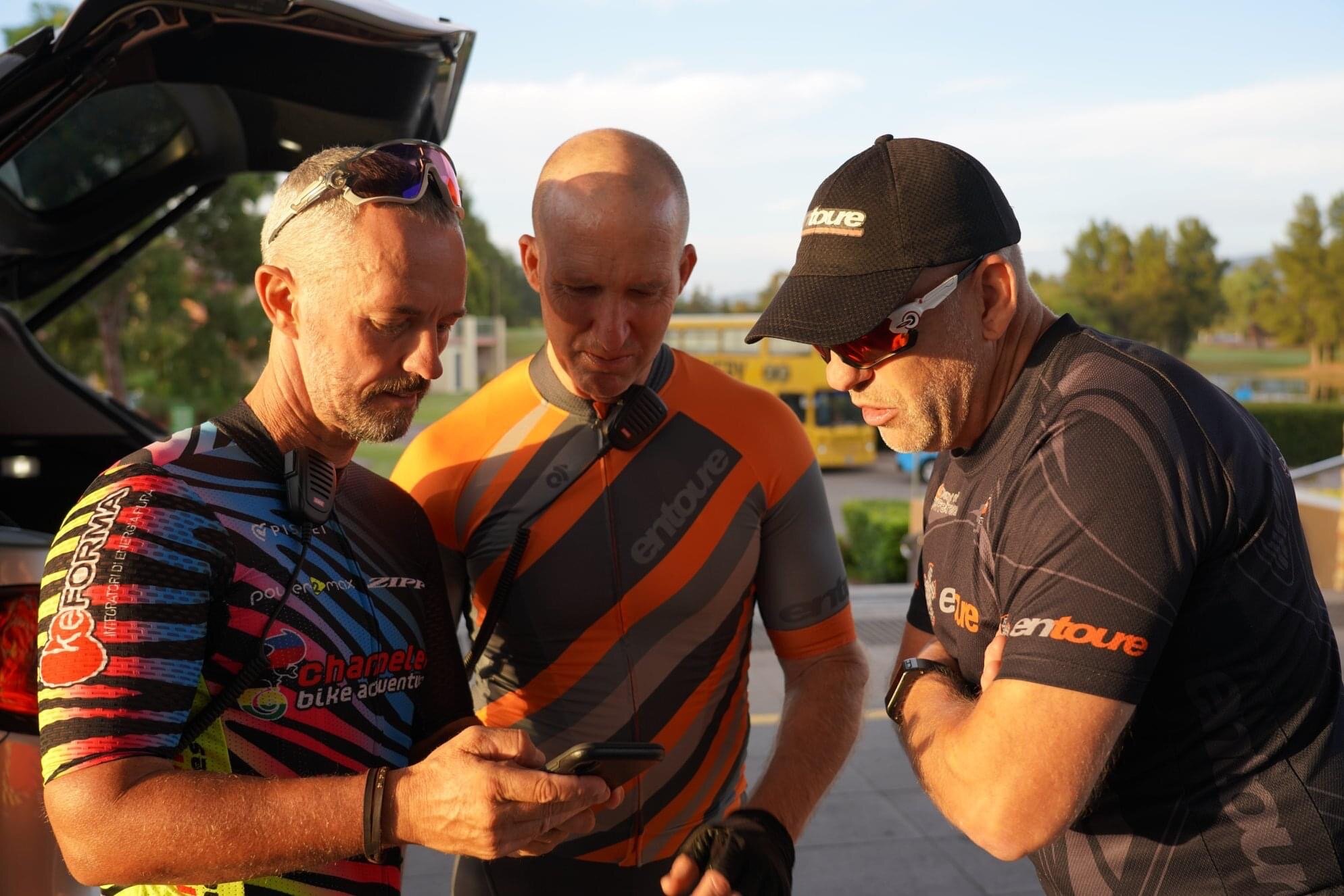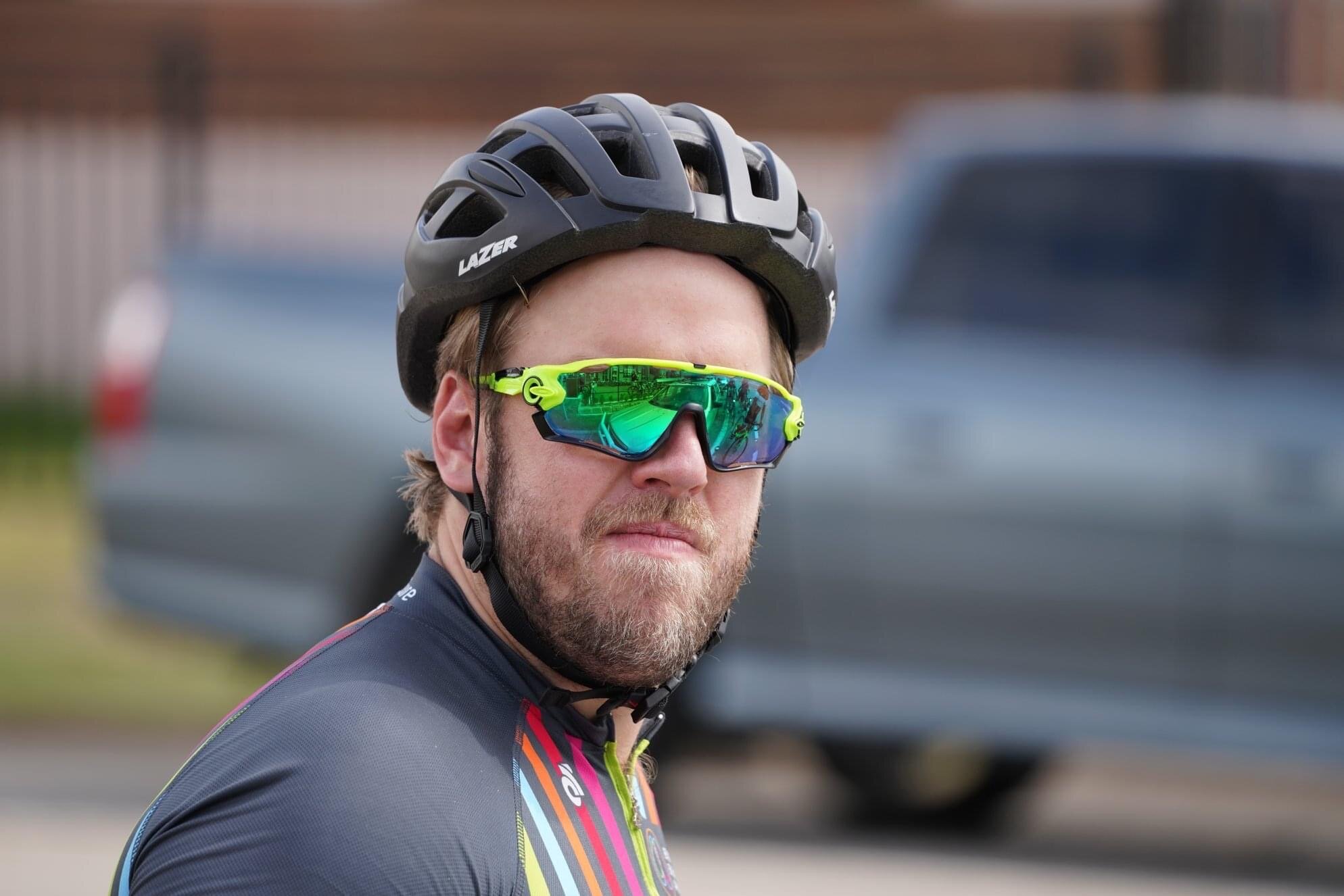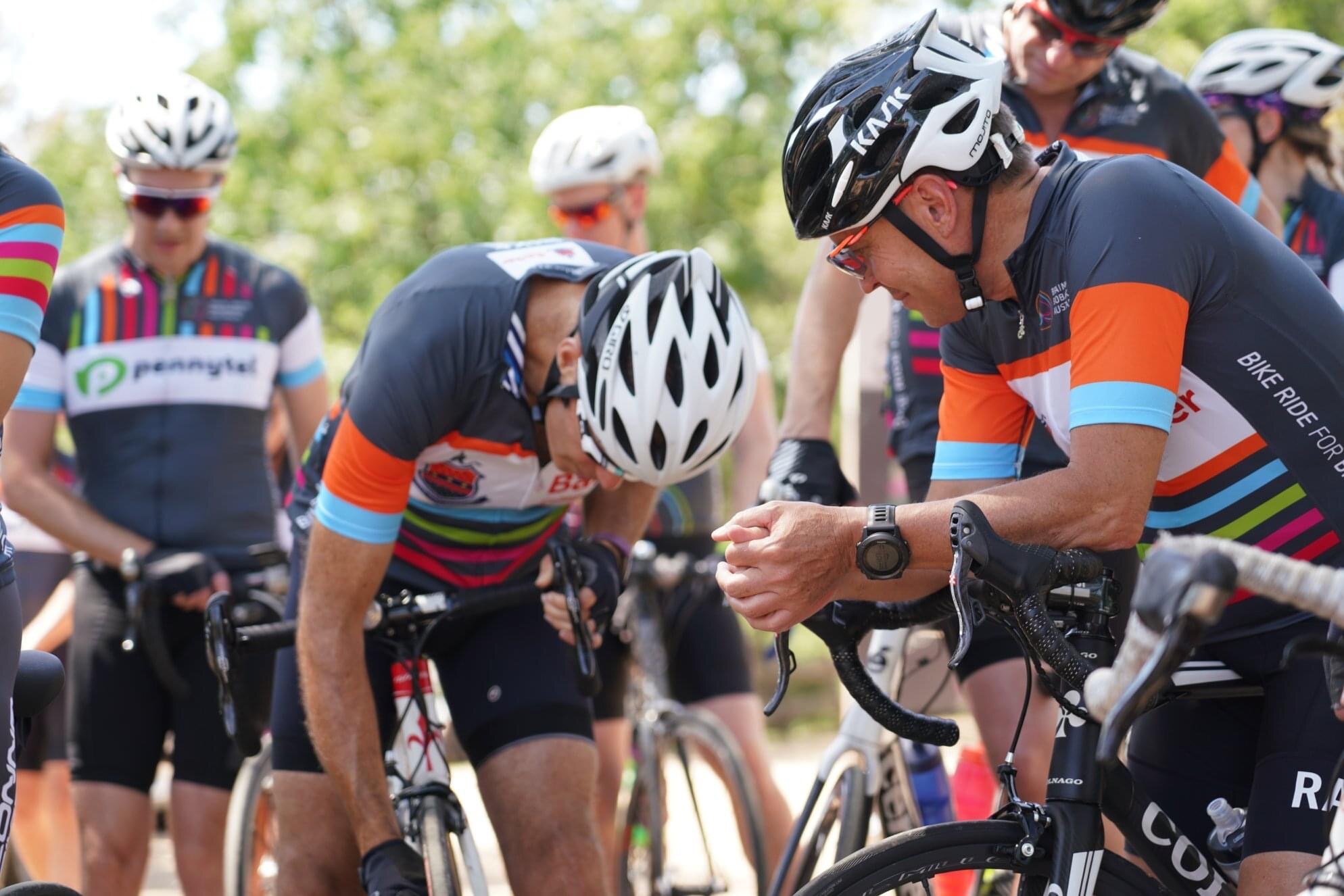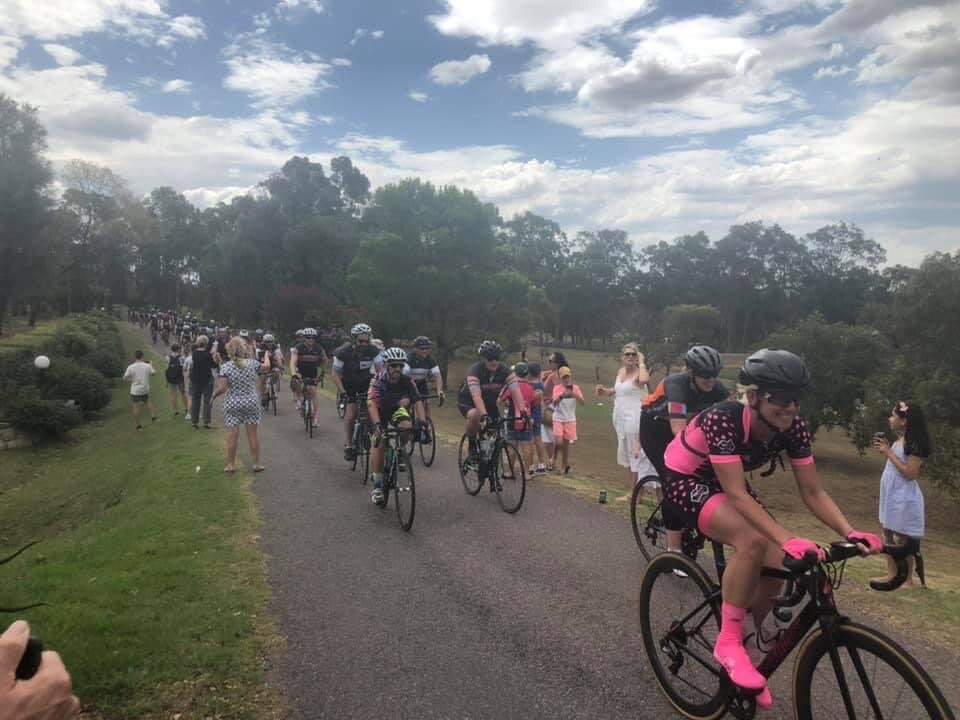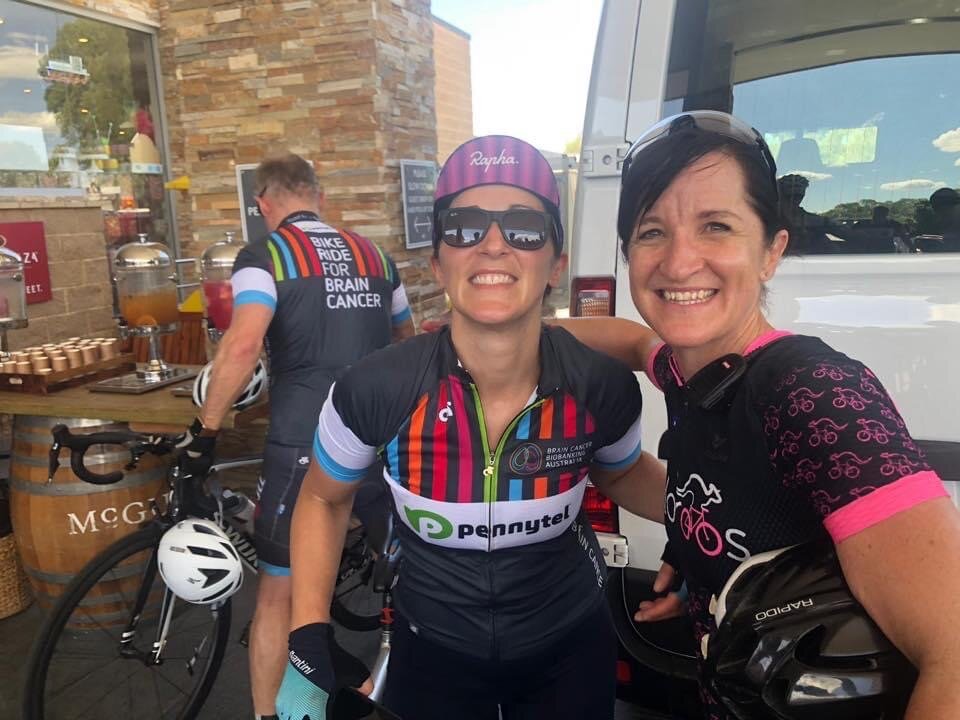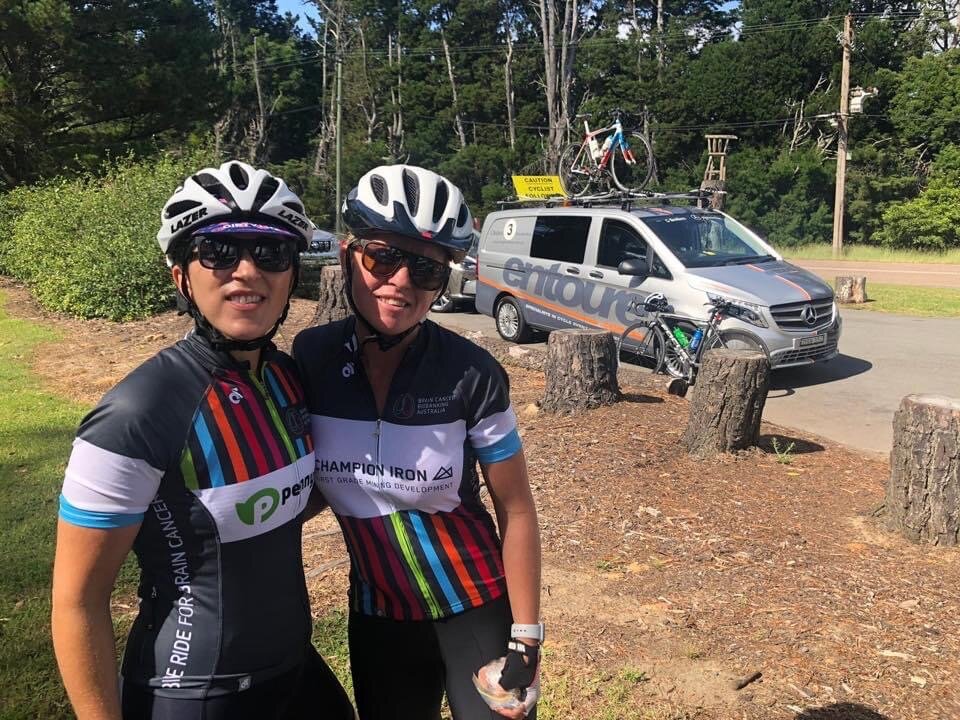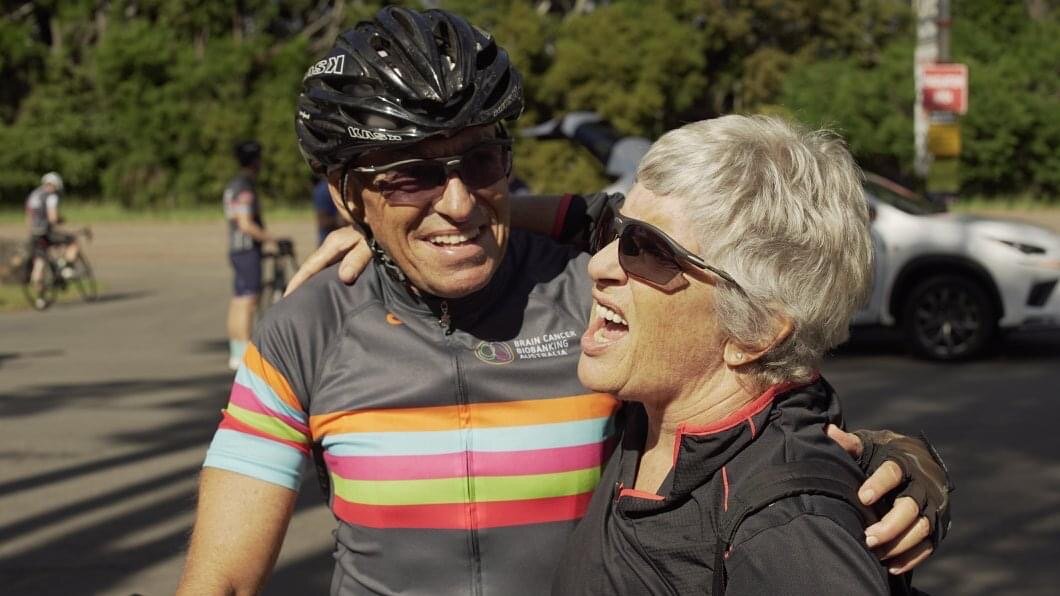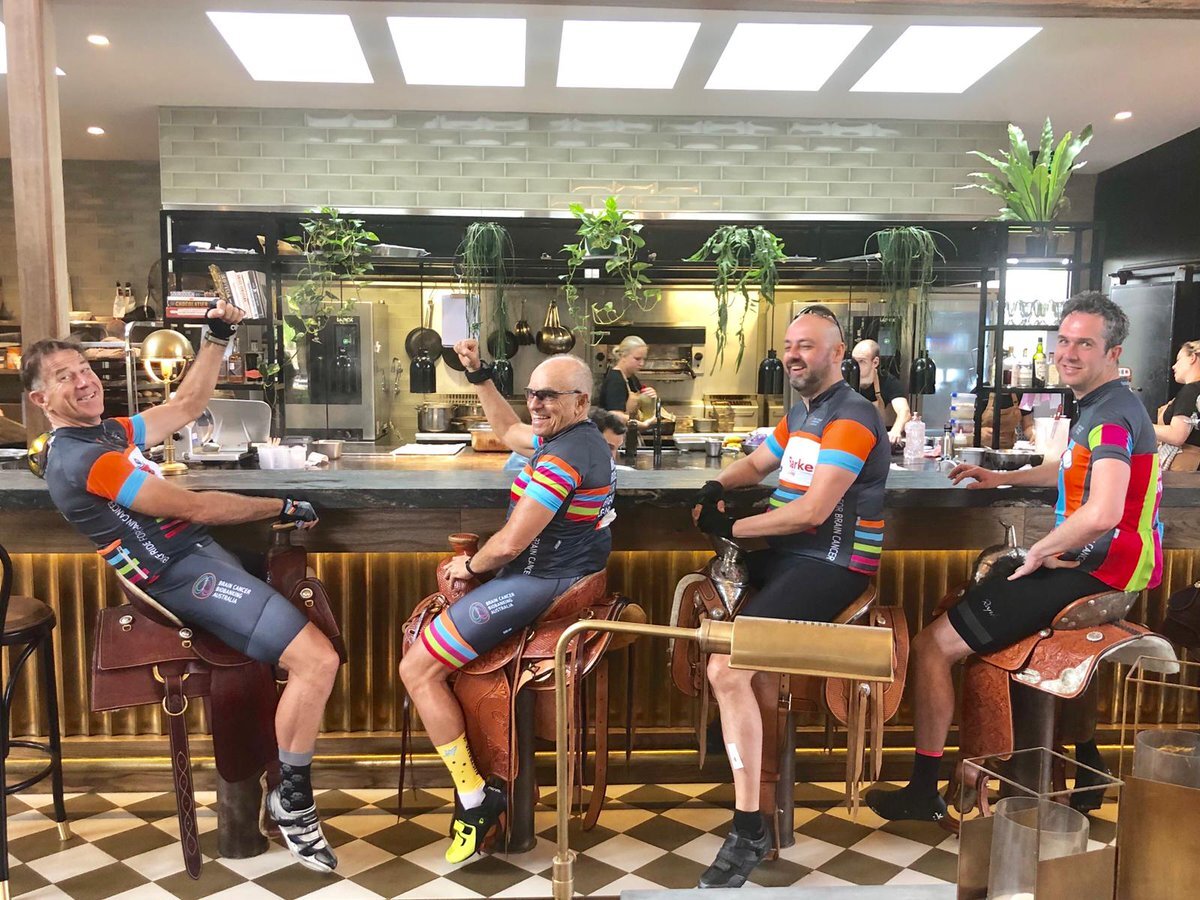The Bike Ride for Brain Cancer is a peloton supported ride held on public roads in support of the Brain Cancer Collective (BCC). The route focuses on taking riders through the heartland of the Hunter Valley and Broke, starting from Hornsby, and offers riders a unique winery experience whilst giving them an opportunity to remember and ride for Lucie Leonard and for improved health outcomes for those fighting with Brain Cancer.
The ride is not designed to be a walk in the park and is rather designed to represent the challenges faced by people fighting Brain Cancer. For the weekend road warrior style bike riders and semi to experienced bike riders, these challenges are less confronting than say they might be to those who take up the bike for the first time in support of a cause. But, that doesn’t mean the challenges are out of reach; it simply means the reward for effort levels differ.
Have a plan
and execute it ….
The Bike Ride For Brain Cancer requires participants to do 2 things:
Raise awareness and funds and
Hit base levels of bike fitness
1 + 2 = job done
My view has always been:
kick the goals and respect the cause
Anything less, is disrespectful.
The joy in kicking goals on and off the bike will always far outweigh the effort required to do so.
Don’t be nervous about them; just get stuck in
and lets respect everyone ever touched by Brain Cancer and draw strength from those riding with it or touched by it within this event. It amazes me how this event becomes their moment and their voice. Lets unite behind them and do this right.
Pelotons
Riders will be placed into graded pelotons (groups) and be required to ride safely at an agreed average speed throughout the duration of each day. Riders cant ride at their own pace; each peloton will ride at a collective pace and this is why it’s imperative everyone who rides in the Bike Ride for Brain Cancer Ride reaches an agreed base level of fitness so as not to hold people up and slow the group down. From an entoure and BCC perspective, safety is key and never up for negotiation and rider safety starts with riders being able to ride safely in the event in terms of the requirements set and for us to be very honest with what those expectations are.
Base Level Fitness
25 k average
The base level of fitness for this ride and peloton average speeds will start at around 25 k an hour up to 28 k + an hour (subject to terrain and weather). For the safety and well-being of all riders, it’s important riders can safely ride in a group at an agreed pace and learn some basic skills that keep them and those around them, safe.
You dont need to be a world beater but,
You do need to become a cyclist
Why 25 hr average
Based on day 1, which is 146 k, if we work off an average of say 25 k an hour, thats almost 6 hours pure ride time. If we then factor in morning tea, lunch, toilet, mechanicals, add 2 hours. If we start at say 7 am, thats a 3 pm finish. If the actual ride time falls to say an average of 20 k for the 146 k and we add 2 hours for stops, that becomes 7.3 hours ride time + 2 hours and more like a 4.30 pm to 5.00 pm finish.
Time on the road opens the door to:
rider fatigue
changes in weather patterns
difficulties in getting massages
difficulties in meeting our logistical commitments
It’s important to:
1. Respect the cause and hit the benchmarks, and
2. Respect the efforts of fellow participants who are already at the benchmark levels
Fitness
It’s important for riders to work on stamina and endurance and that starts with dusting off the bike and simply jumping aboard. You can’t get bike fit without riding your bike and you can’t get stronger on the bike without executing a plan.
250 k over 2 days is your goal
Saddles at Mt White
There is no substitute for time on the bike; every effective training session makes a difference and every targeted training session will help riders reach their individual and event goal. Equally can be said for ineffective training; ineffective training is a very time consuming way to fail.
Beware of Xmas and New Year
Your fitness will more than likely drop away
So get fit, now
Training Plans
I suggest riders take the time to design a training plan that works best for them because, every rider is different and every rider has different goals, strengths and weaknesses. It’s a good idea to try and identify those areas you need to work on and to focus on those areas as much as you can.
If you’re already fit and ride a bike occasionally but, you haven’t ridden in a peloton, then group riding is probably something you need to work on.
If you’re new to riding and this is all a bit of a shock then you simply need to ride your bike; but very quickly, set yourself small goals with the idea of extending your distances and your riding intensity on a weekly basis, so by the time the event comes around you have built up a solid base to be able to ride each day comfortably.
Cycling on public roads has its risks but, those risks are greatly reduced the more prepared and the more experienced you become.
Ride with people faster than you
And dont be afraid of being dropped
Make it your benchmark to improve
Be accountable
Be accountable Join BCC Team Strava
Training for the Event
Within our network we have two highly qualified trainers / coaches that you should make contact with if you’re:
struggling to maintain a 25-hour average pace, and / or
concerned you might struggle on the day
Ben Mellen has decades of personal training experience and most certainly knows how to ride a bike and is ready to make your life easier. Through a structured personalised training program, Ben could make a real difference to your fitness whether it be for this specific event or for life in general. Ben is also part of the BCC family.
BEN MELLEN
Sarah Anne Evans is part of the Veloroos and has been a part of this event (as well as the entoure business) as a ride captain / coach. Sarah has been personally coaching me since March this year and hand on heart I can tell you from my own personal experience, its money well worth spending; if you’re looking for results, Sarah is a good egg. Sometimes having someone to tell you what to do is the easiest thing you can do in life and Sarah’s programs are 100% tailored to delivering an outcome based on where you’re at and where you need to get to.
SARAH ANNE EVANS
Other things to think about include:
food and fuel
weight
sleep
general health
Its a good opportunity to make this event about finding a healthier you.
Anyone wishing to contact these people please reach out to me and lets make it happen.
My Personal View
Firstly, let me just say, for those of you riding virtually, that is totally fine and a very effective and time efficient way to train. At present, probably 90% of my bike riding is done on a smart Tacx trainer either in Zwift or in a Tacx app, with 60 % geared towards intervals and 40% geared towards endurance.
People can be categorised into 1 of 3 categories:
Novice
Weekend road warrior
Semi to Experienced
On average, most people who ride a bike cycle around 100 to 200 k a week and this distance should be your minimum weekly goal. People who ride often can however ride as much as 300 k to 600 k a week; but this level of training and time on a bike is certainly not required for this event.
As you build your weekly distances, you should be looking to mix up the style and purpose of each of your rides and to give your body time to repair and recover. Rest is almost as important as the effort so as you up your training intensity make sure you factor in rest days and even rest weeks. Your long rides should be at a reduced effort whereas your shorter rides should be at a higher level of intensity and include intervals or hill repeats and should be at an effort that has you gasping for breath.
Mix up your rides
Hard, easy, soft days
Set targets
As a guide, my minimum training week if I was training for this event could look a little like this.
Monday: Gym / Yoga / Swim / Walk
Tuesday: 40-60 K Flat to Undulating; Aerobic Zone; Slight Medium Breathing but sustainable for the entire ride. Some efforts.
Wednesday: Gym / Yoga / Swim / Walk
Thursday: 30-50 K Hill Day; Work on seated climbing maintaining smooth pedal strokes at a steady heart rate mid to high cadence. Some efforts.
Friday: Rest Day
Saturday/Sunday: One day should be approx 80 k to 100 K at a steady aerobic zone. One day should be approx 50 to 70 K at a steady aerobic zone. On the longer day, try take on some longer climbs than those you would normally ride during the week as these will help your strength and endurance.
Consistency is key
It’s about regularly getting off the couch and getting the work done week after week after week and not allowing a week to go by without doing something. Improvements dont come immediately but they do come in waves and the jumps are often significant; so hang in there. It’s incredible what you lose when you’re not consistent with your training and the older you get the more you lose and the harder it is to come back.
Life will get in the way and plans will need to be adjusted; don’t stress about that but equally don’t go easy on yourself either. Just make a commitment to get on your bike and to respect the cause and build your distances so you can ride the distances throughout the event at the agreed pace of the peloton you want to be riding with.
Lucie Leonard … why we ride
Some additional info and u tube links below well worth a look



